Organic soap has gained immense popularity in recent years as people become more conscious of the ingredients they are putting on their skin. With the rise in demand for natural and eco-friendly products, many individuals are turning to DIY solutions to create their own organic soap at home. Making your own organic soap not only allows you to control the ingredients used, but it also offers a creative and satisfying experience. Creating your own organic soap is a rewarding process that can be customized to suit your preferences and needs. By using simple and natural ingredients, you can craft a soap that is both gentle on the skin and free from harmful chemicals. One of the key benefits of DIY organic soap is the ability to tailor the recipe to address specific skin concerns, such as dryness, sensitivity, or acne.
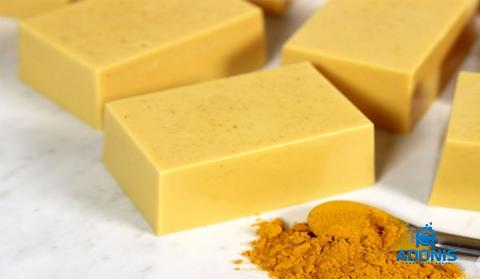
.
 To make your own organic soap, you will need a few basic ingredients that can be easily sourced from local stores or online retailers. The primary components of organic soap include oils, such as coconut oil, olive oil, and shea butter, which provide nourishment and moisturization for the skin. Additionally, you will need lye, a caustic substance that is essential for the saponification process, which transforms the oils into soap. When making organic soap, it is important to practice caution and follow proper safety procedures when handling lye. Protective gear, such as gloves and goggles, should be worn to prevent contact with the skin or eyes. Working in a well-ventilated area is also recommended to avoid inhaling potentially harmful fumes. The process of making organic soap involves mixing the oils and lye together to create a smooth and creamy mixture. This is known as the saponification process, which requires careful monitoring of temperatures and thorough mixing to ensure the ingredients are properly combined. Once the soap has reached the desired consistency, it can be poured into molds and left to cure for several weeks to allow it to harden. One of the advantages of DIY organic soap is the ability to customize the recipe with various scents, colors, and additives. Essential oils, such as lavender, peppermint, or tea tree oil, can be added to create unique fragrances and therapeutic benefits. Natural colorants, such as herbs, spices, or clays, can be incorporated to give the soap a vibrant hue without the use of synthetic dyes. In addition to essential oils and colorants, you can experiment with different additives to enhance the properties of your organic soap. Ingredients like oats, honey, or activated charcoal can be included to provide exfoliation, moisture, or detoxification benefits. By tailoring the recipe to your skin’s needs, you can create a personalized organic soap that nourishes and revitalizes your complexion. The beauty of DIY organic soap lies in its simplicity and versatility.
To make your own organic soap, you will need a few basic ingredients that can be easily sourced from local stores or online retailers. The primary components of organic soap include oils, such as coconut oil, olive oil, and shea butter, which provide nourishment and moisturization for the skin. Additionally, you will need lye, a caustic substance that is essential for the saponification process, which transforms the oils into soap. When making organic soap, it is important to practice caution and follow proper safety procedures when handling lye. Protective gear, such as gloves and goggles, should be worn to prevent contact with the skin or eyes. Working in a well-ventilated area is also recommended to avoid inhaling potentially harmful fumes. The process of making organic soap involves mixing the oils and lye together to create a smooth and creamy mixture. This is known as the saponification process, which requires careful monitoring of temperatures and thorough mixing to ensure the ingredients are properly combined. Once the soap has reached the desired consistency, it can be poured into molds and left to cure for several weeks to allow it to harden. One of the advantages of DIY organic soap is the ability to customize the recipe with various scents, colors, and additives. Essential oils, such as lavender, peppermint, or tea tree oil, can be added to create unique fragrances and therapeutic benefits. Natural colorants, such as herbs, spices, or clays, can be incorporated to give the soap a vibrant hue without the use of synthetic dyes. In addition to essential oils and colorants, you can experiment with different additives to enhance the properties of your organic soap. Ingredients like oats, honey, or activated charcoal can be included to provide exfoliation, moisture, or detoxification benefits. By tailoring the recipe to your skin’s needs, you can create a personalized organic soap that nourishes and revitalizes your complexion. The beauty of DIY organic soap lies in its simplicity and versatility.
..
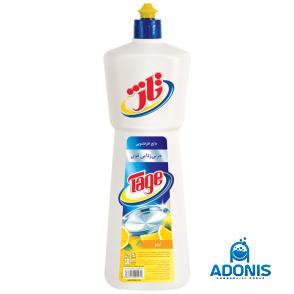 With just a few basic ingredients, you can create a luxurious and nourishing soap that is free from harsh chemicals and artificial additives. Whether you are a seasoned crafter or a beginner looking to explore the world of soap making, creating your own organic soap is a fulfilling and enjoyable experience. By making the switch to organic soap, you are not only benefiting your skin but also supporting a more sustainable and environmentally conscious lifestyle. Traditional soaps often contain synthetic ingredients that can be harmful to both your skin and the planet. By choosing to make your own organic soap, you are reducing your carbon footprint and promoting a more natural approach to personal care. In conclusion, DIY organic soap offers a safe, effective, and eco-friendly alternative to commercial products. By crafting your own soap at home, you have the opportunity to create a personalized product that is tailored to your skin’s unique needs. With a few basic ingredients and a little creativity, you can embark on a journey to healthier, more radiant skin with organic soap. Join the movement towards natural living and experience the benefits of organic soap for yourself. Making your own DIY organic soap is a wonderful way to take control of what goes onto your skin and ensure that you are using only the best and most natural ingredients. As you delve into the world of soap making, you will discover the joy of creating something truly special and unique for yourself and your loved ones. The process of making organic soap can be a therapeutic and enjoyable experience, allowing you to unleash your creativity and experiment with different scents, colors, and textures. Whether you prefer a soothing lavender scent, a refreshing citrus blend, or a gentle unscented soap, the possibilities for customization are endless when you make your own soap at home. In addition to the creative aspect of DIY organic soap making, there are numerous benefits to be gained from using handmade, natural soaps.
With just a few basic ingredients, you can create a luxurious and nourishing soap that is free from harsh chemicals and artificial additives. Whether you are a seasoned crafter or a beginner looking to explore the world of soap making, creating your own organic soap is a fulfilling and enjoyable experience. By making the switch to organic soap, you are not only benefiting your skin but also supporting a more sustainable and environmentally conscious lifestyle. Traditional soaps often contain synthetic ingredients that can be harmful to both your skin and the planet. By choosing to make your own organic soap, you are reducing your carbon footprint and promoting a more natural approach to personal care. In conclusion, DIY organic soap offers a safe, effective, and eco-friendly alternative to commercial products. By crafting your own soap at home, you have the opportunity to create a personalized product that is tailored to your skin’s unique needs. With a few basic ingredients and a little creativity, you can embark on a journey to healthier, more radiant skin with organic soap. Join the movement towards natural living and experience the benefits of organic soap for yourself. Making your own DIY organic soap is a wonderful way to take control of what goes onto your skin and ensure that you are using only the best and most natural ingredients. As you delve into the world of soap making, you will discover the joy of creating something truly special and unique for yourself and your loved ones. The process of making organic soap can be a therapeutic and enjoyable experience, allowing you to unleash your creativity and experiment with different scents, colors, and textures. Whether you prefer a soothing lavender scent, a refreshing citrus blend, or a gentle unscented soap, the possibilities for customization are endless when you make your own soap at home. In addition to the creative aspect of DIY organic soap making, there are numerous benefits to be gained from using handmade, natural soaps.
…
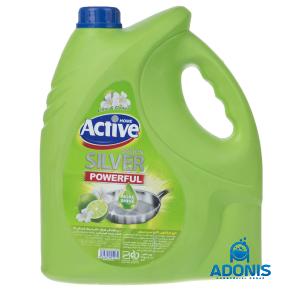 Organic soap is gentle on the skin, making it suitable for those with sensitive skin or skin conditions such as eczema or psoriasis. The nourishing oils and butters used in organic soap formulas help to hydrate and moisturize the skin, leaving it feeling soft, smooth, and rejuvenated. Furthermore, organic soap is free from synthetic fragrances, colorants, and preservatives that can cause irritation or allergic reactions in some individuals. By using natural ingredients in your DIY soap recipes, you can rest assured that you are providing your skin with only the best that nature has to offer. When it comes to choosing ingredients for your organic soap recipes, the options are virtually endless. From luxurious oils like jojoba and avocado to skin-soothing botanicals like chamomile and calendula, there are countless ways to customize your soap to meet your specific skincare needs. Experimenting with different combinations of oils, butters, and additives allows you to create a soap that is perfectly suited to your skin type and preferences. In addition to the benefits for your skin, making your own organic soap is also a sustainable choice that supports environmental conservation. By using natural and responsibly sourced ingredients, you can reduce your carbon footprint and minimize the impact of harmful chemicals on the environment. Organic soap is biodegradable and eco-friendly, making it a planet-conscious choice for those who are committed to living a greener lifestyle. As you continue on your DIY organic soap-making journey, you may find yourself inspired to explore new techniques, ingredients, and formulations. From cold process and hot process soap making to melt and pour and liquid soap recipes, there are endless possibilities to experiment with and create your own signature blends. Whether you are a novice soap maker or a seasoned pro, there is always something new to learn and discover in the world of organic soap crafting. In conclusion, the art of making DIY organic soap is a fulfilling and rewarding endeavor that allows you to take charge of your skincare routine and create products that are as unique and individual as you are. By crafting your own organic soap at home, you can enjoy the therapeutic benefits of working with natural ingredients and the satisfaction of knowing that you are caring for your skin in the best possible way. So why not embark on your own organic soap-making adventure today? With a few simple ingredients, a bit of creativity, and a passion for natural living, you can create luxurious, nourishing soaps that will elevate your self-care routine and leave your skin looking and feeling its very best. Discover the magic of DIY organic soap and experience the joy of handmade skincare products that are as good for you as they are for the planet.
Organic soap is gentle on the skin, making it suitable for those with sensitive skin or skin conditions such as eczema or psoriasis. The nourishing oils and butters used in organic soap formulas help to hydrate and moisturize the skin, leaving it feeling soft, smooth, and rejuvenated. Furthermore, organic soap is free from synthetic fragrances, colorants, and preservatives that can cause irritation or allergic reactions in some individuals. By using natural ingredients in your DIY soap recipes, you can rest assured that you are providing your skin with only the best that nature has to offer. When it comes to choosing ingredients for your organic soap recipes, the options are virtually endless. From luxurious oils like jojoba and avocado to skin-soothing botanicals like chamomile and calendula, there are countless ways to customize your soap to meet your specific skincare needs. Experimenting with different combinations of oils, butters, and additives allows you to create a soap that is perfectly suited to your skin type and preferences. In addition to the benefits for your skin, making your own organic soap is also a sustainable choice that supports environmental conservation. By using natural and responsibly sourced ingredients, you can reduce your carbon footprint and minimize the impact of harmful chemicals on the environment. Organic soap is biodegradable and eco-friendly, making it a planet-conscious choice for those who are committed to living a greener lifestyle. As you continue on your DIY organic soap-making journey, you may find yourself inspired to explore new techniques, ingredients, and formulations. From cold process and hot process soap making to melt and pour and liquid soap recipes, there are endless possibilities to experiment with and create your own signature blends. Whether you are a novice soap maker or a seasoned pro, there is always something new to learn and discover in the world of organic soap crafting. In conclusion, the art of making DIY organic soap is a fulfilling and rewarding endeavor that allows you to take charge of your skincare routine and create products that are as unique and individual as you are. By crafting your own organic soap at home, you can enjoy the therapeutic benefits of working with natural ingredients and the satisfaction of knowing that you are caring for your skin in the best possible way. So why not embark on your own organic soap-making adventure today? With a few simple ingredients, a bit of creativity, and a passion for natural living, you can create luxurious, nourishing soaps that will elevate your self-care routine and leave your skin looking and feeling its very best. Discover the magic of DIY organic soap and experience the joy of handmade skincare products that are as good for you as they are for the planet.


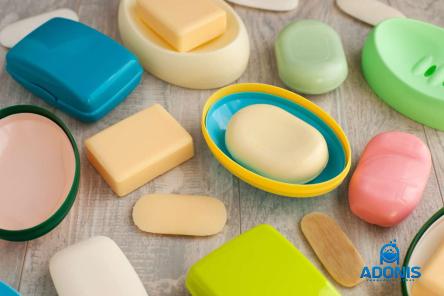
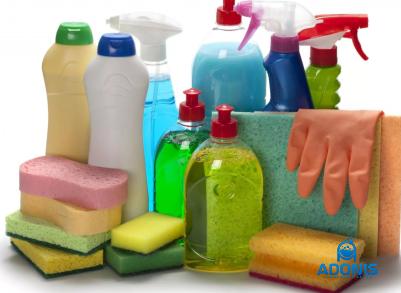


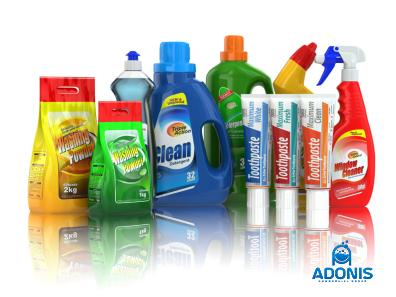
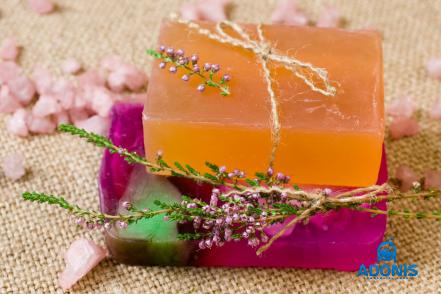
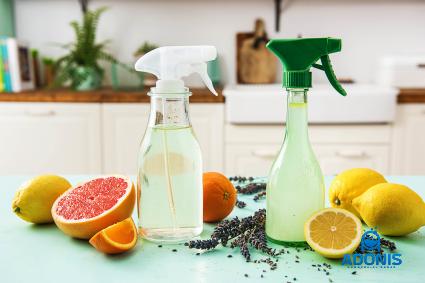
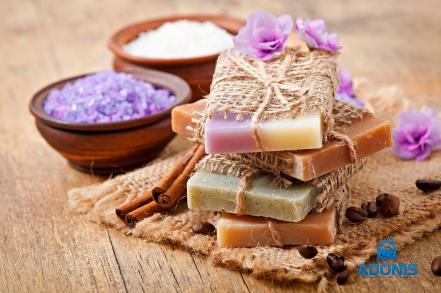
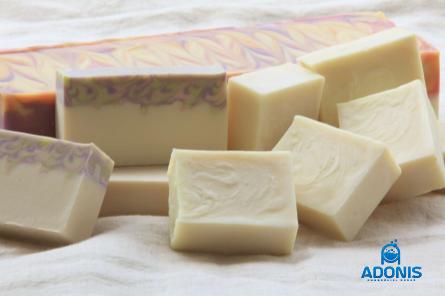
Your comment submitted.